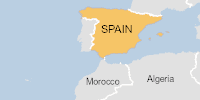RSS Feed Source: Academic Keys
Indiana University Indianapolis, School of Science Department of Physics invites applications for an endowed professorship in physics. The appointment will begin August 1, 2025 (or earlier) on the Indianapolis campus. The successful candidate will be the Inaugural Meiere Professor of Physics. The Chair includes a significant annual funding stream that can be used for a wide variety of purposes, within limits of Indiana University policy.
The search is part of a major expansion of the research profile of IU Indianapolis. We expect close collaboration with the newly established Convergent Bioscience and Technology Institute at Indiana University Indianapolis (CBATI). The creation of CBATI, the upcoming construction of a new research building, and the establishment of other new research institutes, consortia, and academic programs is part of a record-breaking new investment in the Indianapolis campus by the Indiana State Legislature.
The successful candidate will have an outstanding
Click this link to continue reading the article on the source website.

